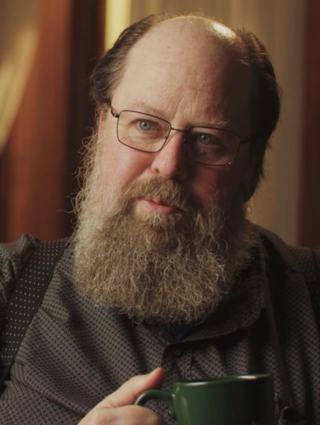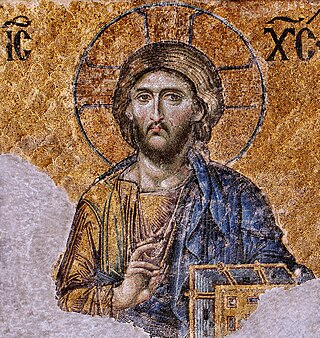The problem of evil is the question of how to reconcile the existence of evil and suffering with an omnipotent, omnibenevolent, and omniscient God. There are currently differing definitions of these concepts. The best known presentation of the problem is attributed to the Greek philosopher Epicurus. It was popularized by David Hume.

In the philosophy of religion, a theodicy, meaning 'vindication of God' in Greek, is an argument that attempts to resolve the problem of evil that arises when omnipotence, omnibenevolence, and omniscience are all simultaneously ascribed to God. Unlike a defence, which merely tries to demonstrate that the coexistence of God and evil is logically possible, a theodicy additionally provides a framework wherein God's existence is considered plausible. The German philosopher and mathematician Gottfried Leibniz coined the term "theodicy" in 1710 in his work Théodicée, though numerous attempts to resolve to the problem of evil had previously been proposed. The British philosopher John Hick traced the history of moral theodicy in his 1966 work Evil and the God of Love, identifying three major traditions:
- the Plotinian theodicy, named after Plotinus
- the Augustinian theodicy, which Hick based on the writings of Augustine of Hippo
- the Irenaean theodicy, which Hick developed, based on the thinking of St. Irenaeus
Open theism, also known as openness theology and free will theism, is a theological movement that has developed within Christianity as a rejection of the synthesis of Greek philosophy and Christian theology. Open theism arises out of the free will theistic tradition of the church, which goes back to the early church fathers. Open theism is typically advanced as a biblically motivated and logically consistent theology of human and divine freedom, with an emphasis on what this means for the content of God's foreknowledge and exercise of God's power.

Nicholas Paul Wolterstorff is an American philosopher and theologian. He is currently Noah Porter Professor Emeritus of Philosophical Theology at Yale University. A prolific writer with wide-ranging philosophical and theological interests, he has written books on aesthetics, epistemology, political philosophy, philosophy of religion, metaphysics, and philosophy of education. In Faith and Rationality, Wolterstorff, Alvin Plantinga, and William Alston developed and expanded upon a view of religious epistemology that has come to be known as Reformed epistemology. He also helped to establish the journal Faith and Philosophy and the Society of Christian Philosophers.

Essais de Théodicée sur la bonté de Dieu, la liberté de l'homme et l'origine du mal, more simply known as Théodicée[te.ɔ.di.se], is a book of philosophy by the German polymath Gottfried Leibniz. The book, published in 1710, introduced the term theodicy, and its optimistic approach to the problem of evil is thought to have inspired Voltaire's Candide. Much of the work consists of a response to the ideas of the French philosopher Pierre Bayle, with whom Leibniz carried on a debate for many years.

John Harwood Hick was a philosopher of religion and theologian born in England who taught in the United States for the larger part of his career. In philosophical theology, he made contributions in the areas of theodicy, eschatology, and Christology, and in the philosophy of religion he contributed to the areas of epistemology of religion and religious pluralism.

The phrase "the best of all possible worlds" was coined by the German polymath and Enlightenment philosopher Gottfried Leibniz in his 1710 work Essais de Théodicée sur la bonté de Dieu, la liberté de l'homme et l'origine du mal, more commonly known simply as the Theodicy. The claim that the actual world is the best of all possible worlds is the central argument in Leibniz's theodicy, or his attempt to solve the problem of evil.

David Bentley Hart is an American writer, philosopher, religious studies scholar, critic, and theologian. Reviewers have commented on Hart's baroque prose and provocative rhetoric within Hart's over one thousand essays, reviews, and papers as well as nineteen books. From a predominantly Anglican family background, Hart became Eastern Orthodox when he was twenty-one. His academic works focus on Christian metaphysics, philosophy of mind, Indian and East Asian religion, Asian languages, classics, and literature as well as a New Testament translation with Yale. Books with wider audiences include The Doors of the Sea, Atheist Delusions, and That All Shall Be Saved. In addition to accolades and book awards, Hart has been criticized as heterodox by a variety of Christian scholars.
Natural evil is evil for which "no non-divine agent can be held morally responsible for its occurrence" and is chiefly derived from the operation of the laws of nature. Others such as Christian theologians reject this definition and argue that natural evil is the indirect result of original sin just as moral evils are, although moral evil is "caused by human activity" directly. Some theologians even argue that natural evil is directly perpetrated by demonic agents. Atheists argue that the existence of natural evil challenges belief in the existence, omnibenevolence, or omnipotence of God or any deity.

Eastern Orthodox theology is the theology particular to the Eastern Orthodox Church. It is characterized by monotheistic Trinitarianism, belief in the Incarnation of the essentially divine Logos or only-begotten Son of God, a balancing of cataphatic theology with apophatic theology, a hermeneutic defined by a Sacred Tradition, a catholic ecclesiology, a robust of the person, and a principally recapitulative and therapeutic soteriology.

The Irenaean theodicy is a Christian theodicy. It defends the probability of an omnipotent and omnibenevolent God in the face of evidence of evil in the world. Numerous variations of theodicy have been proposed which all maintain that, while evil exists, God is either not responsible for creating evil, or he is not guilty for creating evil. Typically, the Irenaean theodicy asserts that the world is the best of all possible worlds because it allows humans to fully develop. Most versions of the Irenaean theodicy propose that creation is incomplete, as humans are not yet fully developed, and experiencing evil and suffering is necessary for such development.

The "Poème sur le désastre de Lisbonne" is a poem in French composed by Voltaire as a response to the 1755 Lisbon earthquake. It is widely regarded as an introduction to Voltaire's 1759 acclaimed novel Candide and his view on the problem of evil. The 180-line poem was composed in December 1755 and published in 1756. It is considered one of the most savage literary attacks on optimism.

The Augustinian theodicy, named for the 4th- and 5th-century theologian and philosopher Augustine of Hippo, is a type of Christian theodicy that developed in response to the evidential problem of evil. As such, it attempts to explain the probability of an omnipotent (all-powerful) and omnibenevolent (all-loving) God amid evidence of evil in the world. A number of variations of this kind of theodicy have been proposed throughout history; their similarities were first described by the 20th-century philosopher John Hick, who classified them as "Augustinian". They typically assert that God is perfectly (ideally) good, that he created the world out of nothing, and that evil is the result of humanity's original sin. The entry of evil into the world is generally explained as consequence of original sin and its continued presence due to humans' misuse of free will and concupiscence. God's goodness and benevolence, according to the Augustinian theodicy, remain perfect and without responsibility for evil or suffering.
Relating theodicy and the Bible is crucial to understanding Abrahamic theodicy because the Bible "has been, both in theory and in fact, the dominant influence upon ideas about God and evil in the Western world". Theodicy, in its most common form, is the attempt to answer the question of why a good God permits the manifestation of evil. Theodicy attempts to resolve the evidential problem of evil by reconciling the traditional divine characteristics of omnibenevolence and omnipotence, in either their absolute or relative form, with the occurrence of evil or suffering in the world.
Fleming Rutledge is an American Episcopal priest and author. Ordained to the diaconate in 1975, she was one of the first women to be ordained to the priesthood in the Episcopal Church.
Theological fiction is fictional writing which shapes people's attitudes towards theological beliefs. It is typically instructional or exploratory rather than descriptive, and it engages specifically with the theoretical ideas which underlie and shape typical responses to religion. Theological fiction, as a concept, is used by both theists and atheists, such as in fictional pantheons and cultures in theological fantasy literature.
Christianity is a central theme in J. R. R. Tolkien's fictional works about Middle-earth, but always a hidden one. This allows the book to be read at different levels, and its meaning to be applied by the reader, rather than forcing a single meaning on the reader.
Religious responses to the problem of evil are concerned with reconciling the existence of evil and suffering with an omnipotent, omnibenevolent, and omniscient God. The problem of evil is acute for monotheistic religions such as Christianity, Islam, and Judaism whose religion is based on such a God. But the question of "why does evil exist?" has also been studied in religions that are non-theistic or polytheistic, such as Buddhism, Hinduism, and Jainism.
This is a list of books and selected essays by David Bentley Hart.

The meta-historical fall is an understanding of the biblical fall of man as a reality outside of empirical history that affects the entire history of the universe. This understanding of the human fall is a minority view among Christian theologians and associated by some with what they consider heresies, such as belief in the pre-existence of souls.









